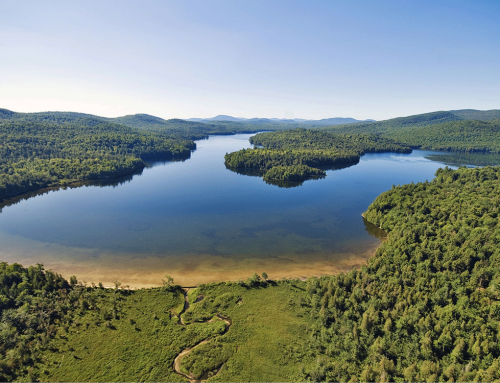As we move through the end-of-the-year holidays season it’s worth pausing to note that 2012 will go down as as the warmest year ever for the lower 48 states in the U.S. An unusually warm spring was followed by the hottest July ever and average, but still warm, summer and fall months. Intermittent December snow and rain through much of the Adirondacks has kept large lakes from freezing and snowpack from forming in lowland locations. (Anybody up for a New Year’s day paddle?) Our friends at Climate Central have put out this fine report on 2012. All sorts of good information can also be found at the Climate Monitoring project of the National Oceanic and Atmospheric Administration (NOAA).
10 of the warmest years on record in the U.S. have been in the last 15 years, but nothing beats 2012. Reliable, formal weather record keeping began in 1895. Across the U.S. in 2012 over 15,000 “warmest day ever” records were set in dozens of states. 2012 saw extreme droughts across the U.S. that devastated many regions. Melting of the arctic ice shield saw areas of ice the size of Maine melt away each day in August. This excellent video recaps a year of the warmest weather ever in the U.S.
A longer verifiable temperature dataset exists for Central Park in New York City (see above). Temperature measurements there began in 1869. The long-term warming trend is unmistakable and mimics that of the rest of the U.S.
Note too that the trend line points towards even higher temperatures in the future.
Only Florida and the southeast saw cooler temperatures than normal, while almost every area west of the Mississippi River saw higher temperatures (see map here).
Though the warmest year on record in the continental U.S., 2012 will go down as the 9th warmest year for the planet. NOAA has a good series of reports that track national and global climate.
Bill Mckibben and 350.org completed a terrific “Do the Math” tour across the U.S. last fall focusing on advocacy for colleges and universities to divest from fossil fuel industries in their endowment investment portfolios. 350.org and the Sierra Club have partnered on a national mobilization on Presidents Day weekend in February to pressure President Obama to get serious about climate change.







